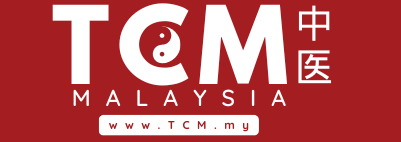In today’s fast-paced world, stress has become an almost inevitable part of life. From work deadlines to personal responsibilities, it’s easy to feel overwhelmed. But what if there was a natural, holistic way to manage stress and restore balance to your mind and body? Enter Traditional Chinese Medicine (TCM)—an ancient healing system that offers powerful tools for stress relief.
Understanding Stress Through the Lens of TCM
In TCM, stress is often seen as a disruption in the flow of Qi (vital energy) and an imbalance between Yin and Yang. When Qi is blocked or stagnant, it can lead to physical and emotional symptoms like fatigue, irritability, insomnia, and even digestive issues. TCM aims to restore harmony by addressing the root cause of stress, not just its symptoms.

TCM Approaches to Stress Relief
1. Acupuncture
Acupuncture is one of the most well-known TCM practices for stress relief. By inserting thin needles into specific points on the body, acupuncture helps:
- Regulate the nervous system
- Release endorphins (natural “feel-good” chemicals)
- Improve energy flow and reduce tension
Common points for stress relief include:
- Yintang (印堂 MHN3): Calms the mind and relieves anxiety.
- Shenmen (神门 HT7): Promotes relaxation and emotional balance.
- Neiguan (内关 PC6): Calms the heart and spirit.
2. Herbal Medicine
TCM herbal formulas are tailored to individual needs and can help address stress-related symptoms. Some popular herbs include:
- Reishi Mushroom (灵芝, Língzhī): Known as the “mushroom of immortality,” it promotes relaxation and supports the immune system.
- Schisandra (五味子, Wǔwèizǐ): Helps the body adapt to stress and improves mental clarity.
- Licorice Root (甘草, Gāncǎo): Balances hormones and soothes the nervous system.
A simple herbal tea with goji berries, red dates, and ginseng can also work wonders for stress relief.
3. Qi Gong and Tai Chi
These gentle movement practices combine breath control, meditation, and flowing movements to:
- Reduce stress hormones like cortisol
- Improve mental focus and emotional resilience
- Enhance overall energy flow (Qi)
Even just 10–15 minutes a day can make a big difference!
4. Dietary Therapy
In TCM, food is medicine. Eating the right foods can help balance your body and reduce stress. Focus on:
- Warm, cooked meals: Easier to digest and nourishing for the body.
- Leafy greens and whole grains: Support liver health and detoxification.
- Avoid excess caffeine and sugar: These can overstimulate the body and worsen stress.
5. Emotional Balance with TCM
TCM recognizes the connection between emotions and physical health. Practices like meditation, acupressure, and ear seeds (small seeds placed on ear acupuncture points) can help release emotional tension and promote inner peace.

Take the First Step Toward Calm
If stress is taking a toll on your life, consider exploring TCM. Whether it’s through acupuncture, herbal medicine, or mindful movement, TCM offers a natural path to balance and well-being.
